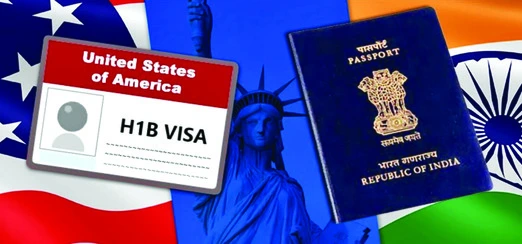By Sujit Bhar
Indian IT companies have long been key players in the US tech scene, helping global giants like Apple, CitiBank and Cisco innovate and thrive. Companies like TCS, Infosys, Wipro and Cognizant have successfully leveraged their expertise to dominate the market, generating billions in revenue. However, a shadow now hangs over their success as allegations of discriminatory hiring practices surface, suggesting that these firms are prioritizing South Asian talent, particularly Indian H-1B visa holders, at the expense of American workers.
The latest storm centres around Cognizant, a $14 billion multinational that has grown from its Indian roots in Chennai to become a tech powerhouse headquartered in New Jersey. Cognizant has found itself at the centre of a legal battle after a US jury ruled that the company engaged in discriminatory practices against non-Indian employees.
The class-action lawsuit, filed by three American workers, accused Cognizant of unfairly favouring Indian workers on H-1B visas and sidelining local talent—specifically those identifying as “Caucasian”. This ruling is not an isolated case. Similar accusations have been levelled against other Indian IT giants, pointing to a systemic issue. Indian IT firms have long relied on the H-1B visa programme to meet the demands of US clients, arguing that they are simply filling a talent gap in the American workforce.
But as the tech industry evolves and competition for jobs tightens, these firms are finding themselves under increasing scrutiny. The H-1B visa programme was originally designed to help US companies hire highly skilled foreign workers for specialized positions that were hard to fill domestically.
But critics argue that companies like Cognizant have exploited the system, using loopholes to bring in Indian workers en masse while pushing American employees to the sidelines. Bloomberg reported that Cognizant held the highest number of H-1B visas of any US employer between 2013 and 2019. Despite this, the company insists it complies with US immigration laws and maintains that it has increased local hiring in recent years.
Cognizant’s spokesperson reiterated that the company “provides equal employment opportunities for all” and is committed to a “diverse and inclusive workplace”. Yet the data presents a different story. A 2017 complaint highlighted that while South Asians make up only 12% of the US IT workforce, they account for 75% of Cognizant’s US employees. This disparity has fuelled allegations of bias, with claims that “visa-ready” workers from India are fast-tracked into US positions, leaving non-South Asian employees languishing on the “bench” or even losing their jobs.
This isn’t the first time Indian IT firms have faced such accusations. In 2003, Tata Consultancy Services (TCS) was hit with a similar lawsuit, and again in 2015. In both instances, American workers claimed they were replaced by H-1B visa holders. Though TCS denied the allegations and won in court, the cases left a lasting mark on the company’s reputation and highlighted the simmering tensions between local and imported talent in the tech industry.
As the global economy shifts further towards AI-driven solutions, the demand for top-tier tech talent is fiercer than ever. The US firms, struggling to find the right skills domestically, and continue to rely on H-1B visa holders to maintain their competitive edge.
The Indian IT firms, in turn, supply this much-needed workforce, making them indispensable to the US tech ecosystem. But as lawsuits and accusations pile up, questions about fairness and diversity loom large. Are these firms prioritizing the best talent, or are they taking advantage of immigration loopholes to boost profits? The answers could shape the future of tech hiring in America.
In the meantime, Indian IT companies will continue to walk a tightrope, balancing their need for skilled workers with the legal and public relations challenges that come with their reliance on foreign talent. For US policymakers, the challenge is equally daunting: how to craft immigration laws that protect American workers while keeping the country’s tech industry globally competitive. The debate over H-1B visas is far from over, and it is clear that the future of America’s tech workforce—and its relationship with Indian IT giants—will depend on the outcomes of these legal battles.
One thing is certain: as the world continues to digitize, the demand for tech talent will only grow, and the struggle for control over who gets those jobs is just beginning.


